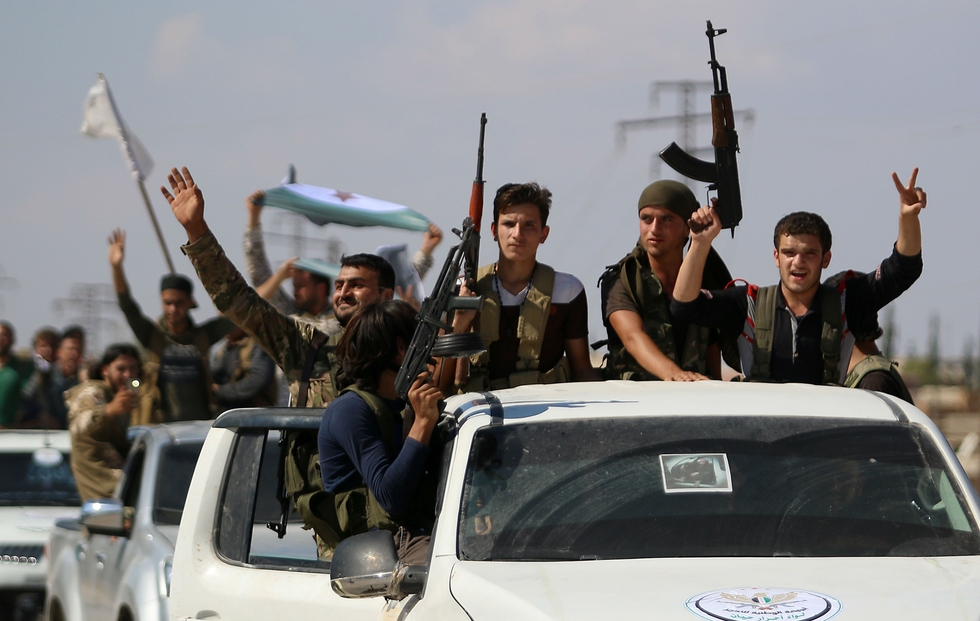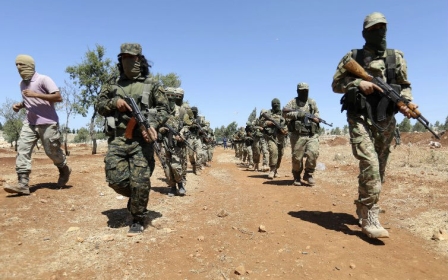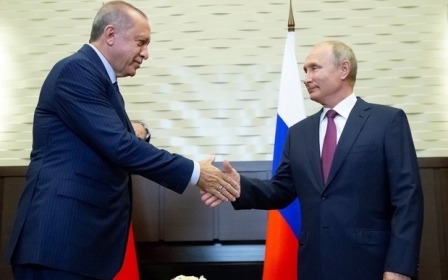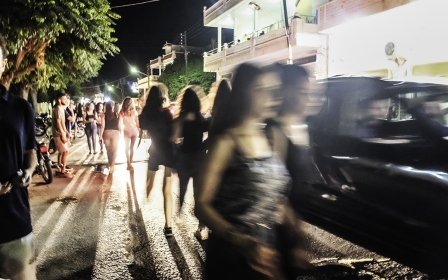First rebel group begins withdrawal from demilitarised zone in Syria's Idlib: Monitor

Turkish-backed fighters have begun withdrawing from areas in northern Syria under a deal brokered by Ankara and Moscow to avert a large-scale military assault on the country's last major opposition stronghold, a monitor said. Still, hours later the report was denied.
Faylaq al-Sham has 8,500 to 10,000 fighters who are part of a Turkish-backed alliance known as the National Liberation Front (NLF), Rami Abdurrahman, head of the UK-based Syrian Observatory for Human Rights, told the AFP news agency on Sunday.
The group "began pulling out of areas in the southern countryside of Aleppo and the western suburbs of Aleppo city with heavy weapons, including tanks and cannons," said Abdurrahman.
The NLF, while welcoming the deal, said on Sunday that it had not yet moved any heavy arms from the planned zone. "There have been no withdrawals of heavy weapons from any area or any front. This report is denied, completely denied," NLF spokesman Naji Mustafa told AFP.
Amid conflicting information, the actual situation on the ground in the Idlib region was not immediately clear.
A pullback would be in line with a plan agreed between Syrian government ally Russia and rebel-backer Turkey for Syria's Idlib province and surrounding opposition-held territory, which included setting up a demilitarised zone.
The NLF was formed in August and merged the armed groups Ahrar al-Sham and Nureddine al-Zinki with other rebel factions with Turkey's backing.
It is aimed at countering the growing power of Hay'at Tahrir al-Sham (HTS), led by al-Qaeda's former Syrian affiliate, which controls 60 percent of Idlib.
HTS has yet to announce its position regarding the agreement.
The NLF controls the rest of Idlib province but is also active in parts of neighbouring Aleppo, Hama and Latakia provinces.
"It is the second most powerful group in northern Syria in terms of military equipment and the third largest in terms of manpower," Abdurrahman said.
'Withdrawal of radical fighters'
On 17 September, Russian President Vladimir Putin and his Turkish counterpart Recep Tayyip Erdogan agreed to set up the demilitarised zone after talks in the Russian resort of Sochi.
Under the agreement, a 15 to 20km-wide corridor is to be established by 15 October from which all rebel fighters must withdraw, paving the way for Turkish and Russian patrols of the area.
This would entail a "withdrawal of all radical fighters" from Idlib, Putin said at the time.
Russia-backed Syrian government forces had massed around Idlib province in recent weeks, sparking fears of an imminent air and ground attack to retake the opposition bastion.
The United Nations, which cautiously backed the Russia-Turkey deal, had warned that an all-out assault on Idlib would trigger a humanitarian catastrophe and possibly one of the worst bloodbaths of Syria's seven-year war.
New MEE newsletter: Jerusalem Dispatch
Sign up to get the latest insights and analysis on Israel-Palestine, alongside Turkey Unpacked and other MEE newsletters
Middle East Eye delivers independent and unrivalled coverage and analysis of the Middle East, North Africa and beyond. To learn more about republishing this content and the associated fees, please fill out this form. More about MEE can be found here.




